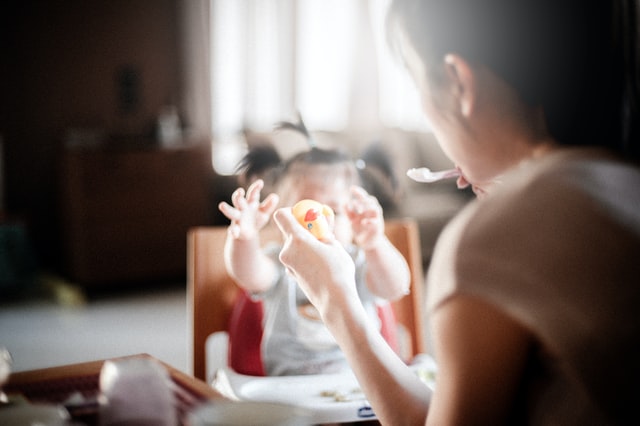I’ve seen my mom cry too many times to count. As a child, I’ve witnessed her make up excuses for why she was locked up in her room crying after a fight with my dad: “I just watched a sad movie,” “Your lola just called and reminded me of a happy memory. These are happy tears!” I saw her cry after she threw my school books out in the yard after I came home with low grades. She cried on my shoulder when I left for college.
My mom has made a lot of mistakes before and during motherhood. During the times when I needed a strong and independent figure as a role model, she showed frailty and vulnerability. There were times when she also treated me with an iron fist when I showed weakness. While this may have left an impact on me, I couldn’t ever blame her fully. She is a doting and loving woman—your textbook definition of a mother. Which was probably why motherhood was so difficult for her.
The Goddess Myth
An article from Time Magazine explained that many mothers fall for a kind of hero complex called “The Goddess Myth.” It shows that mothers have the tendency to believe that they are empowered and have all the means to take care of a child from their womb all the way to their growing years. With these expectations come the pressure of being a perfect mother. A survey of around 38,000 mothers from United Kingdom and United States showed that once they began nurturing their baby, they suddenly felt regret, shame, guilt or anger due to the immediate financial, mental or physical hardships they experienced.

Motherhood is, without a doubt, one of the most difficult responsibilities there is to take. They are, in fact, in charge of an individual’s growth and development. Their words, actions, values and beliefs will reflect upon the psyche of their children. There are pressures of modern parenting, of whether to be a fun mom or a strict mom or how to balance both.
Although the “mother knows best” narrative has been perpetuated by mothers themselves to make their children follow them, it has in some ways backfired, subjecting them to the pressures of always trying to be the best.
However, some children have long held the belief that their mothers know best, and in turn, have taken to believing in “The Goddess Myth.” Our mothers become our role models and we believe that they could do no wrong. Although the “mother knows best” narrative has been perpetuated by mothers themselves to make their children follow them, it has in some ways backfired, subjecting them to the pressures of always trying to be the best.
For children, their mother’s veil of perfection suddenly disappears when they start to defy mother’s orders and strict measures. Psychological studies show that children begin to feel negative emotions towards their parents when they suddenly feel alienated or misunderstood due to the rejection of the “child” identity. Thus, the mother aims to be the perfect mother for a child she is still trying to understand. Along the way, she will make mistakes.
Rejecting the goddess
While there are many books and manuals on how to raise a kid, there will never be a one-size-fits-all method to raise a child perfectly. Finding a textbook definition of good parenting won’t guarantee that mistakes won’t be made. In fact, the pressure to be a perfect parent may just be detrimental to a child’s growth and the mother’s health.
At the end of the day, we must understand that mothers can make wrong decisions. They can give wrong advice and misunderstand your feelings. However, as long as they acknowledge their mistakes, then it’s worth forgiving them. To do so, children must accept that mothers don’t always know what’s best and for mothers, this will help in easing the pressure of parenthood.
In some way, I learned from my mother’s weaknesses as much as I learned from her strengths.
My mother made mistakes and yes, I have held grudges against her. As I grew older, I made my own mistakes and soon understood where her mistakes stemmed from—pressure, confusion, anger, miscommunication—and realized that she deserves no less than forgiveness, considering all the efforts she’s made to improve herself. In some way, I learned from my mother’s weaknesses as much as I learned from her strengths.
For mothers, especially on Mother’s Day, we hope that you forgive yourselves as well—a lesson we’re all looking forward to learning from you.
Get more stories like this by subscribing to our weekly newsletter here.
Read more:
7 things you probably didn’t know about Mother’s Day